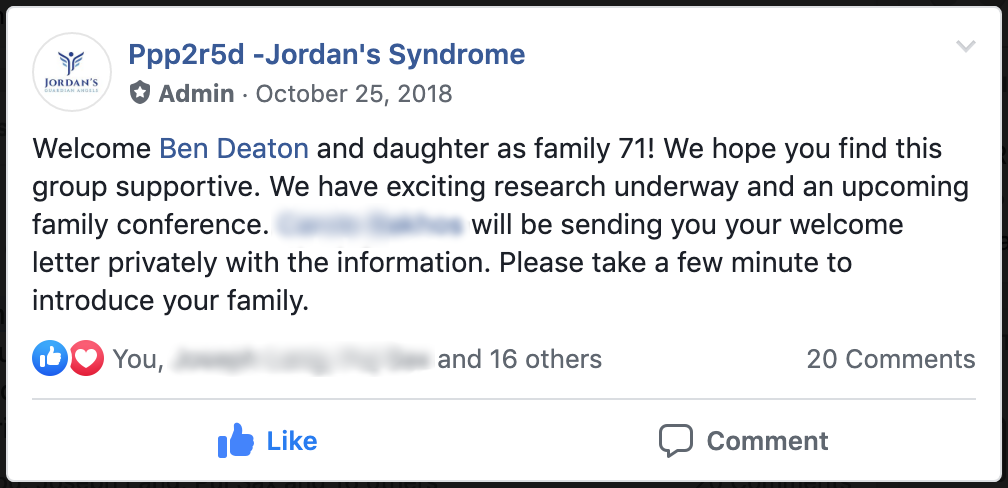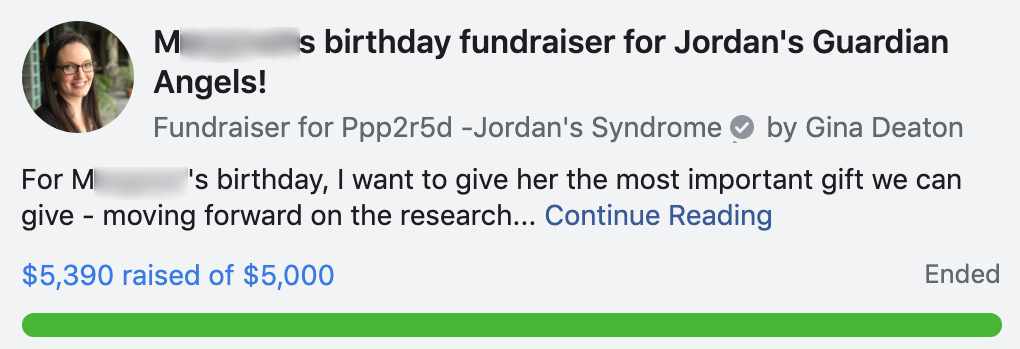I have wrestled with the wisdom of having a Facebook account for years. I’ve deactivated, reactivated, and exported all my data with the intent to permanently delete (multiple times each).
I am deeply concerned about that data that companies like Facebook collect about their users. I am deeply concerned about the impact of social media on friendship as a construct. I am deeply concerned about the effect of social media on my and others’ mental health. I am deeply concerned about the impact that Facebook wields over geopolitical matters. I could link to article after article that makes coherent and compelling arguments that you should steer very clear of these technologies. I have been quite convinced by these arguments.
And so it was that in October of 2018, (I can’t remember the final straw but) I decided it was finally time to take the nuclear option and permanently delete my profile on principle.
But life was crazy and I never got around to it.
Then another thing happened on October 25, 2018: After a year of testing and investigation, we received a conclusive rare genetic disorder diagnosis for our youngest daughter M. The pediatric genetics group at Emory University was not very helpful at this point—to be fair, it’s unreasonable to expect any geneticist to know much about a disorder affecting what we would come to find out was less than 100 known individuals.
We were told, in essense: (a) Your daughter has an ultra-rare genetic disorder with fewer than 30 cases described in the medical literature, (b) we have no idea how to estimate the severity of her case and long-term prognosis, (c) come back in two years and we’ll review the literature for you to see if there’s anything new, and (d) there’s a family Facebook group you should join that might be helpful. Good luck!
The PPP2R5D Families Facebook Group
It turned out that the private PPP2R5D Families Facebook group is the central gathering point for all families worldwide who are affected by our daughter’s disorder. As soon as we saw the banner image on this Facebook page, we immediately recognized the characteristic shape of our daughter’s head in the collage of children’s photos and knew we had found our tribe.
We immediately requested to join and within hours were met with the following post in the group:

Family number 71! Our daughter M was the 71st known case in the whole world. Gina and I: 😭😭
It would be hard to put into words what this message meant to us. We had been on a 1.5-year journey at that point trying to figure out what was going on with our daughter. While our family and friends were incredibly supportive, nobody we knew got it. We didn’t know anyone who had navigated the world of #raredisease at that point. Lots of people we knew were empathetic, but almost no one we knew could actually relate.
Within 24 hours, the following things happened via this Facebook group:
- We received an outpouring of support and encouragement from families from all over the US, England, Ireland, Israel, the Netherlands, Australia, New Zealand, etc.
- We met the other family in Atlanta with a PPP2R5D variant.
- We were connected with Dr. Wendy Chung from Columbia University (PI on the 9-university research study seeking a cure), spoke with her on the phone, and were fast-tracked for an appointment in her clinic in NYC.
- We learned all about the non-profit connected to the PPP2R5D gene (Jordan’s Guardian Angels) and the coordinated research efforts underway at nine research centers all over the world.
The understanding between people in this group is unlike anything I have ever experienced. Every day someone will describe an experience or ask a question (what has worked for you for xyz symptom?) and be met with a chorus of “me too” or “here’s what worked for us” from some of the only people in the world who truly know.
Another thing that is truly incredible about this group is that not only do the families come from all over the world, but they speak different languages. The Facebook “Translate this” tool allows for reasonably seamless conversation across language barriers, even about complex medical questions.
This group of now-101 families has been a lifeline for us. As soon as we had joined this group and all the love and support started flowing in, my wife and I looked at each other and were like: Yeah, we’re not deleting Facebook.
Network effects
Facebook has also allowed for some interesting effects which we didn’t anticipate at first. After we learned about the research being conducted for PPP2R5D/Jordan’s Syndrome, we knew that we wanted to do everything we could to raise money for this nonprofit and help find a cure that would help our daughter and all other current and future children affected by this disorder.
We quickly picked up on a common tactic many families used to raise money: holding a Facebook fundraiser on the child’s birthday. M’s second birthday was approaching, and my wife Gina suggested we go for it.
This was our first foray into medical fundraising.
Gina set up the fundraiser and did an incredible job telling M’s story. She set it up with an initial goal of $2000, but we met that goal within 24 hours. So we increased the goal to $4000. Then we reached that goal and increased it again.
Eventually the fundraiser reached over $6000 between Facebook and direct donations to Jordan’s Guardian Angels (not captured in the image below):

Here are some things about this that surprised us:
- A huge percentage of that $6000 came from people on Facebook who (a) we don’t know very well and (b) have never even met our daughter.
- Many of our good friends shared the fundraiser with their networks which led to donations from people we don’t know at all, but who were touched by our daughter’s story.
- This is uncomfortable to discuss, but many people we know pretty well never even acknowledged the fundraiser or responded in any way. I’m not (too) upset about it, but it’s interesting to point out in the sense that if we had directly emailed people we thought would be supporters, many of the people who would have been on that list weren’t the people that ended up giving.
Facebook facilitated something here that I don’t think we could have executed otherwise.
So you’re sharing medical information on Facebook?
Yes. It’s not lost on me that I have a million concerns about Facebook and then choose to participate in a group centered around the minutiae of specific genetic details pertaining to my daughter. Facebook knows the precise letters that are modified in her genome vs. the wild type human.
It is simply the price I have to pay to for access to the best information that can help her.
Alternatives to Facebook?
I’ve wracked my brain to think what an alternative gathering point would be.
What other tool meets the following criteria:
- Everyone uses it already.
- Provides built-in language translation for cross-cultural communication.
- Has public and private elements to support public dissemination of information and private collaboration of families.
- Makes it easy for advocacy and fundraising with friends who are not in the private families group.
An email list is basically the only possible alternative I can think of, and its problems seem numerous and self-evident in comparison to what Facebook enables on this front.
We could still use Facebook except with (semi-)anonymous profiles? That solves the private family group problem but not the global advocacy and fundraising aspects.
Rare disease parents don’t have time to add another tool to their arsenal or website to check. The gathering point tool has to be totally seamless or else it won’t be used.
Look, I want to hate Facebook as much as the next person but what else could accomplish everything above?
I don’t have the “luxury of opting out”, as Vicki Boykis put it recently.
What can you do?
I would appreciate it from the bottom of my heart if you would consider the following:
- Please follow PPP2R5D - Jordan’s Syndrome on Facebook to learn more about our children and the exciting research that is underway.
- Please consider supporting Jordan’s Guardian Angels, the non-profit driving the research on PPP2R5D. We have met the founders and the entire research team and can vouch for the amazing work they are doing. You can make a donation using this link that will go to directly drive the research that could help our children. 🙏